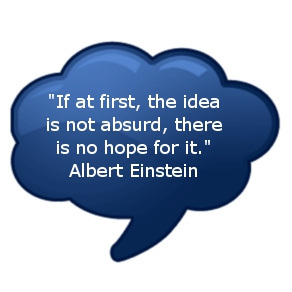New game theory
Chatfield’s Principles for Engagement
(7 reasons why games reward the brain)
Tom Chatfield author of Fun Inc speaking at TED described how games have the power to bring about brain reactions that stimulate game players in such a way that they are left wanting more. The techniques used may seem manipulative but they are none the less very effective. Chatfield distils these mechanisms into seven principles. These principles are talked of as a means to motivate and interest youngsters in educational matter by intensifying interaction at a level of brain stimuli. What is interesting is how these principles can be just as readily applied to a business environment as a source of leadership guidance.
The seven principles:
- Experience bars measuring progress
- Multiple long and short term aims
- Rewards for effort
- Rapid, frequent, clear feedback
- An element of uncertainty
- Windows of enhanced attention
- Other people
1 Simple and clear measurement of progress that allows people to understand where they are and how far they have to go. This principle works just as well in a business environment, consider the use of percentage complete in project reporting. The key is for it to be honest and accurate and for it to be relevant to individuals as far as possible. The use of these progress bars is quite a common feature on the internet, for example in completing online surveys to keep the participant engaged to the end of the questions.
2 Having a vision that is supported by a strategy to achieve it with goals as way points to reward success periodically along the way with the key intention of maintaining motivation and morale for the long haul. People need to feel that they are making progress to some point, the identification of intermediate points provides small measures of success that can sustain efforts in the longer term. In games securing the new space ship may come with a million experience points but if there is nothing between 0 and 1,000,000 few people would stay the course.
3 Games reward effort by increases in experience, virtual money, points or whatever in order to make the time invested feel worthwhile. The rewards are often personalised and relevant to the individual and maintain the desire to stay involved. In the workplace this may also be possible, sometimes a simple thank you is enough to ensure support. Celebrating success is too easily forgotten when the next challenge looms but it is the celebration of the current success that often strengthens the will to face the next challenge.
4 Providing feedback to support progress satisfies a basic need for praise when things are going well or support when things aren’t quite so good. We all need it the important thing for leaders is to remember to give it just as much as you might seek it.
5 In games the uncertainty provides a thrill factor, the thing that keeps you on the edge of the seat, waiting to see what lies around the next corner. Business is no different and many people thrive on the uncertainty whether they realise it or not. Building a level of tension and pressure can have a positive effect as long as it is not overwhelming or for too long, it is also good to have moments of peace, islands of stability.
6 There are times when we feel very engaged, a heightened sense of awareness and ability. Compare it to the opposite, for example the first session in a training course after lunch when everything feels ten times harder. Recognising where these windows are, whether they can be encouraged by events can open the door to higher levels of effectiveness or productivity. Monitor your day in a number of different situations…when do those windows arrive? Is there a consistent pattern that can be capitalised on?
7 Well balanced and supportive teams make a massive difference. In the game world teams form around common goals, people go out of their way to help complete strangers with tips and equipment, donating things they have spent hours or cash to earn. Building a similar work environment is not impossible, put the preceding six principles in place and team members will feed of each other as they work on delivering a vision.

